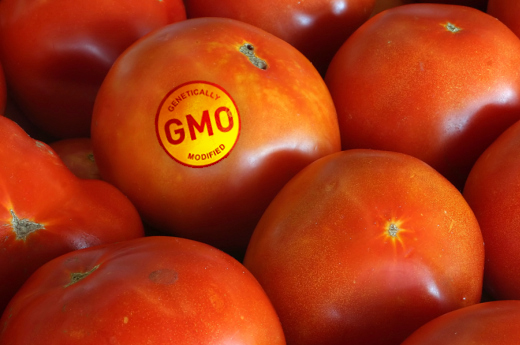by guest blogger Megan Westgate, Executive Director of the Non-GMO Project
When California Proposition 37 failed to pass at the polls last November, all of us who advocate for the right to know were profoundly disappointed. However, the measure, which would have mandated labeling of foods containing genetically engineered ingredients, garnered more than 6 million votes, and was actually a great case of “losing forward.” Despite outspending of nearly 5 to 1, the initiative lost by just 2 percentage points and attracted a significant amount of national media attention.
Inspired by California’s effort, nearly 40 states are now working on mandatory labeling of GMOs (genetically modified organisms). In June, Connecticut and Maine became the first states to pass mandatory GMO labeling—though in both cases additional states need to pass similar measures in order for the laws to take effect.
This November, voters in Washington State will have a chance to pass I-522, a similar but improved version of the Prop 37 legislation. Since January, organizers in California have been sharing lessons learned with their peers in Washington, giving I-522 a solid foundation for success. As a state with an economy focused on exports—a lot of which go to countries with GMO bans—Washington is uniquely concerned about GMO contamination. With the looming threat of genetically engineered apples, salmon, and wheat—all quintessential Washington crops—even conventional farmers in the state are becoming concerned about the economic impact of GMOs.
The non-GMO movement is, at its core, about the right to know. Because GMOs are unstable and experimental, they are subject to mandatory labeling in more than 60 countries around the world, including Australia, Japan, Russia, China, and all of the European Union. More research is needed to understand the long-term health and environmental implications of genetic engineering, but in the United States that research is essentially being conducted on the public, without consent.
Despite biotechnology industry promises, none of the GMO traits currently on the market offers increased yield, drought tolerance, enhanced nutrition, or any consumer benefit. Meanwhile, a growing body of evidence connecting GMOs to health problems and environmental damage has triggered a massive public backlash.
At the federal level, the Just Label It campaign has collected more than 1.3 million signatures on a Food and Drug Administration (FDA) petition demanding mandatory GMO labeling. Although the FDA has yet to respond, this is more than twice as many signatures as have ever been received on any food petition in the agency’s history.
Americans are also voting in record numbers with their wallets. The Non-GMO Project—a nonprofit organization that oversees North America’s only third-party non-GMO verification, including ongoing ingredient testing—has quickly seen its label become the fastest growing in the natural products industry. With annual sales of well over $3.5 billion, Non-GMO Project Verified products are now found everywhere from independent food co-ops to big-box retailers.
When the Non-GMO Project was founded in 2007, mandatory labeling efforts had almost completely stalled. In that void, the project’s strategy was to leverage the power of the marketplace, using supply and demand principles to preserve and build a non-GMO food supply. When it began, skeptics far outweighed supporters; many said it would be impossible to get a critical mass of food companies to voluntarily adopt such rigorous standards. Six years later, the progress is astonishing. More than 1,000 brands are now enrolled in the Non-GMO Project’s Product Verification Program, and more than 14,000 products have successfully earned the verification.
This market demand and the corresponding rekindling of mandatory labeling efforts clearly show Americans are not willing to remain in the dark when it comes to the food we’re eating and feeding to our loved ones. The momentum will continue until we have the same right to know about GMOs in our food as our peers around the world.
 Megan Westgate is the Executive Director of the Non-GMO Project, which offers North America’s only third-party verification for products produced according to rigorous best practices for GMO avoidance. In recent years, this mission-driven organization has begun profoundly impacting the food supply in the US and Canada. Megan grew up in the rolling hills and abundant farmland of Western Massachusetts and now lives on a 5-acre homestead in Bellingham, WA. Her life’s work is to support connection and access to sustainable, nourishing food.
Megan Westgate is the Executive Director of the Non-GMO Project, which offers North America’s only third-party verification for products produced according to rigorous best practices for GMO avoidance. In recent years, this mission-driven organization has begun profoundly impacting the food supply in the US and Canada. Megan grew up in the rolling hills and abundant farmland of Western Massachusetts and now lives on a 5-acre homestead in Bellingham, WA. Her life’s work is to support connection and access to sustainable, nourishing food.





Thanks Megan for this update. The momentum is building. Thanks for all you are doing to “Just Label It.”
I am so grateful for the work you are doing. Once I began eating organic food, my allergies were more than cut in half. My whole body feels better. I look for the NON-GMO Project label now all the time, and am so relieved when I find it more and more places. It really helps me feel there is hope for our food when I see how many people are devoting their life’s work to fighting GMOs. Thank you so much for all you do, my health depends on it!
We are getting there. More and more companies are labeling through Non-GMO Project due to consumer demand. My personal goal is to inform at least one new person each day in my work with GMO-Free PA. There are still many, many people out there who do not know what a GMO is, even people who strive to live a healthy lifestyle. I was one of them a few years ago and I wished I had learned sooner.
Thank you, thank you, thank you, and others like you.
Hey vefy nice blog!
Would like to know more about the GMO foods and Specialty Foods that you can’t tell if they’re GMO by barcodes and labels we try to keep the dietary law which is in the Bible and trying to eat clean. Not GMO Foods also a lot of products that have pork enzymes very interested in your article thank you